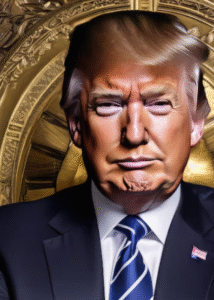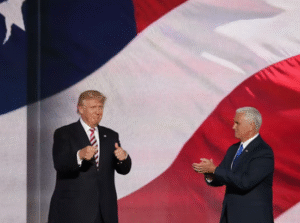$COPPER $XME #Tariffs #TradePolicy #EconomicImpact #USPolitics #TrumpAdministration #GlobalTrade #CopperImports #InflationControl #PatriotismEconomics #MarketTrends
Why Do Trump’s Tariffs Not Cause Inflation? The Surprising Role of Patriotism!
In the latest update on trump news, President Donald Trump has escalated his trade policy by introducing new tariff threats against a wide array of nations, along with a specific new duty on copper imports. This move has ignited discussions among economists and policy analysts regarding its potential impacts on the U.S. economy.
Understanding the New Tariffs
The new tariffs encompass a broad spectrum of countries and commodities, with copper being a notable highlight due to its extensive use in various industries, including electronics and construction. The decision to impose these tariffs, according to a White House advisor, is driven by a strategy to bolster domestic industries and reduce reliance on foreign goods.
The Economic Rationale Behind Tariffs
Tariffs are typically seen as a double-edged sword in economic policy. While they can protect domestic industries from foreign competition, they also tend to lead to higher prices for consumers and can stoke inflation. However, in the case of the Trump administration’s recent policy, there’s a unique twist to the narrative. The advisor suggests that these tariffs are not causing the usual inflationary pressures due to a surge in “patriotism buying.”
Patriotism Buying: A Closer Look
Patriotism buying refers to a phenomenon where consumers and businesses prioritize purchasing domestically-produced goods over cheaper foreign alternatives, motivated by a sense of national pride and a desire to support the domestic economy. This behavior can mitigate some of the inflationary effects typically associated with tariffs, as it keeps money circulating within the local economy and supports American jobs.
Impact on the Market and Consumer Choices
The concept of patriotism buying is intriguing because it indicates a shift in consumer behavior that could have long-lasting effects on the U.S. economy. By choosing American-made products, consumers are essentially voting with their wallets to support local businesses, which can lead to increased production, job creation, and ultimately, a more robust economic environment.
Copper Imports and Broader Economic Implications
Focusing on copper, the new duty could potentially disrupt global supply chains and impact industries reliant on this crucial metal. However, if U.S. consumers and companies adapt by turning to domestic suppliers, this could lessen any negative impacts. For more detailed insights on market responses and stock implications, you can read further on our stock-focused analysis page.
Looking Ahead: Tariffs in the Trump Era
As these tariff policies unfold, the key to understanding their full impact lies in observing how patriotism buying continues to influence economic activities. This approach may offer a blueprint for balancing protectionism with economic growth, suggesting a new model for handling trade disputes and economic policies.
Conclusion: A New Dimension in Economic Strategy
President Trump’s tariff strategy, underscored by the unexpected factor of patriotism buying, adds a new dimension to the discourse on trade and economics. It challenges traditional views on the effects of tariffs and proposes a potentially viable method of fostering domestic growth without triggering detrimental inflation. As this situation develops, it will be crucial to monitor how these policies continue to shape the economic landscape.











Comments are closed.